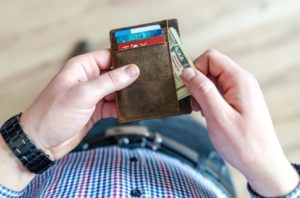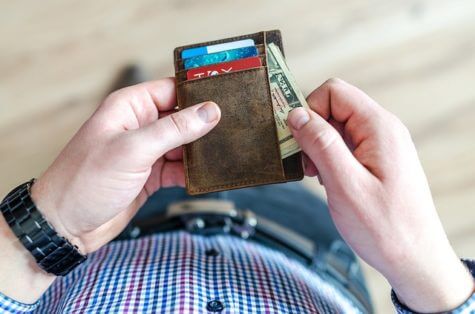NEW YORK — Americans’ zeal for the checkout line may be costing them hundreds of thousands in the long run. A new study finds that 20% of the purchases adults make are done impulsively, costing more than $5,000 each year.
In a survey of 2,000 American adults commissioned by the online couponing site Slickdeals, researchers sought to better understand the frequency of — and mindset behind — impulse purchases.

Perhaps the researchers’ most striking finding was that the average American is guilty of three impulse buys a week, amounting to about 156 a year. In fact, the survey found that one in every five purchases a person makes is done on the fly. These spending habits cost the average consumer around $450 a month, or $5,400 a year. Over the course of a lifetime, impulse buys set the average shopper back $324,000, the researchers noted.
The most common categories for impulse purchases included food (as indicated by 71% of respondents), clothing (53%), household items (33%), and shoes (28%). Even just grabbing a pack of gum in the checkout counts. Three-quarters of those surveyed say they’ve wound up buying candy while waiting in the checkout line at the grocery store. And while candy may seem innocent enough, impulsive shopping can be extreme too: 11% of respondents indicated they’d actually taken a spontaneous vacation.
To be fair, most consumers (54 percent) make impulse buys for their own enjoyment. Feelings of happiness and excitement were found to be strongly correlated with unplanned purchases.
If our willingness to flush money down the toilet seems difficult to comprehend, it may be because capitalism is at play. Two-thirds of respondents said that they only made impulse buys if they could snag a good deal.
Meanwhile, if you ever feel like your bargain hunting has gone too far, you can always redirect your efforts toward items that you may actually use.
“You can buy impulsively and get the rush of getting a great deal, but do it sensibly by buying things you’ll need later on,” explains Josh Meyers, Slickdeals’ CEO, in a release. “For instance, you can buy a birthday or Christmas present for family and friends months in advance, or you can stock up on household essentials [with coupons].”
Many Americans seem to already be taking Meyers’ advice— 85 percent, for example, tend to look for deals or coupons before checking out— and a strong majority (70 percent) have decided against purchasing an item after seeing its shipping costs.
Still, there’s no such thing as too good of a deal when you don’t need what you think you want.

Comments
Comments are closed.